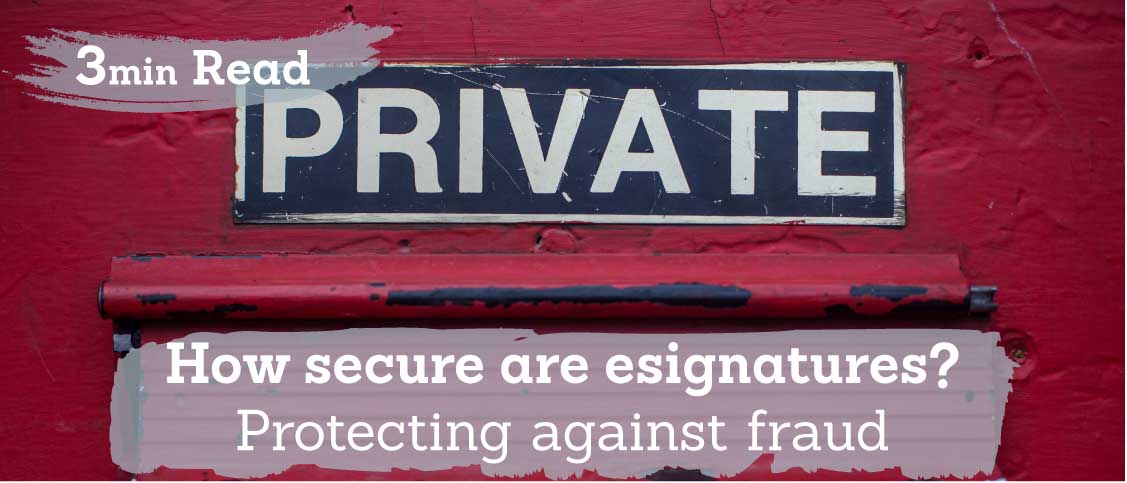How safe are electronic signatures in the real world?

Published:
Why change to a secure electronic signature?
Just like a physical or ‘Wet’ signature, an eSignature is a mark that declares your agreement with the document it’s associated with. As the word ‘mark’ suggests, it can be almost anything and doesn’t need to look like your name or your ‘Wet’ signature at all.
The question is… Are eSignatures safe?
The use of secure electronic signature save the cost of getting all the signatures you require, in half the time, but speed doesn’t mean your security is lost in the process.
Think of how many times you’ve signed a receipt in a hotel… the times you’ve signed for a delivery, those squiggles are a little questionable but, you never second guess these methods. If you’ve given a physical signature to someone it’s not all that hard to forge. Especially if the document falls into the wrong hands.
The risks of fraud is considerably lessened by using eSignatures, as with services like Signable, your information is heavily encrypted and contains a full log of the activity related to a document. So if someone’s changed something on the document you’ll see it.
eSignature security features
- Email:
most services will send unique links in emails to the signers. You will be required to click a link through which you will access the document. The link is only accessible to the person who has access to the email address it’s sent to.
- SSL Encryption:
‘SSL (Secure Sockets Layer)’ is the standard security technology for encrypted links. This link makes sure that all data passed between the web server and browsers will always be secure and private.
- Audit Trail:
All activity starting from when you upload the document is logged in a full audit trail that’s attached to the envelope in your account.
- Password protection:
As a sender you’ll have the option to password protect your documents, which adds another layer of security to your signing process.
- Stored securely in the Cloud:
When a document has been signed and completed, it’s stored securely in the Cloud where only users YOU give permission are able to access it.
How to tell if something doesn’t seem right?
- You will be directly linked to the eSignature
Your email address and IP address will be linked to the secure electronic signature and it will be possible to validate this.
- It will be impossible for anyone to change the content of the signed document:
If anyone attempts to alter the document’s content after signing, a notification will be sent to all parties.
Legality
Some electronic signature apps such as Signable will give you the right to control the document’s content. If anyone makes an alteration to the document, you will receive a notification.
In many legal cases documents that’ve been signed with eSignatures have provided the evidence needed to win the case. This is where a physical signature would be less secure and harder to validate, meaning it’s usability in legal cases has become obsolete.
The bottom line…
So, there’s nothing really stopping you using a secure electronic signature. With all the right legal and security measures in place your information will be safe. Even though to some more traditional companies online signing may seem less trustworthy if you’re not familiar with the process. But, think, do you want your information falling into the wrong hands? With eSignatures you’re able to control who can view your information, and more importantly stop anyone altering your information for their own gain.
With the right safety precautions in place, your information is safer than using traditional signatures. So sit back and enjoy the convenience of fast transactions and completed contracts from the safety of your desk chair, or living room sofa.
Marie Erhart is a Success Manager at FieldPulse, creators of field service software that lets you run your entire contracting business from a single app.
